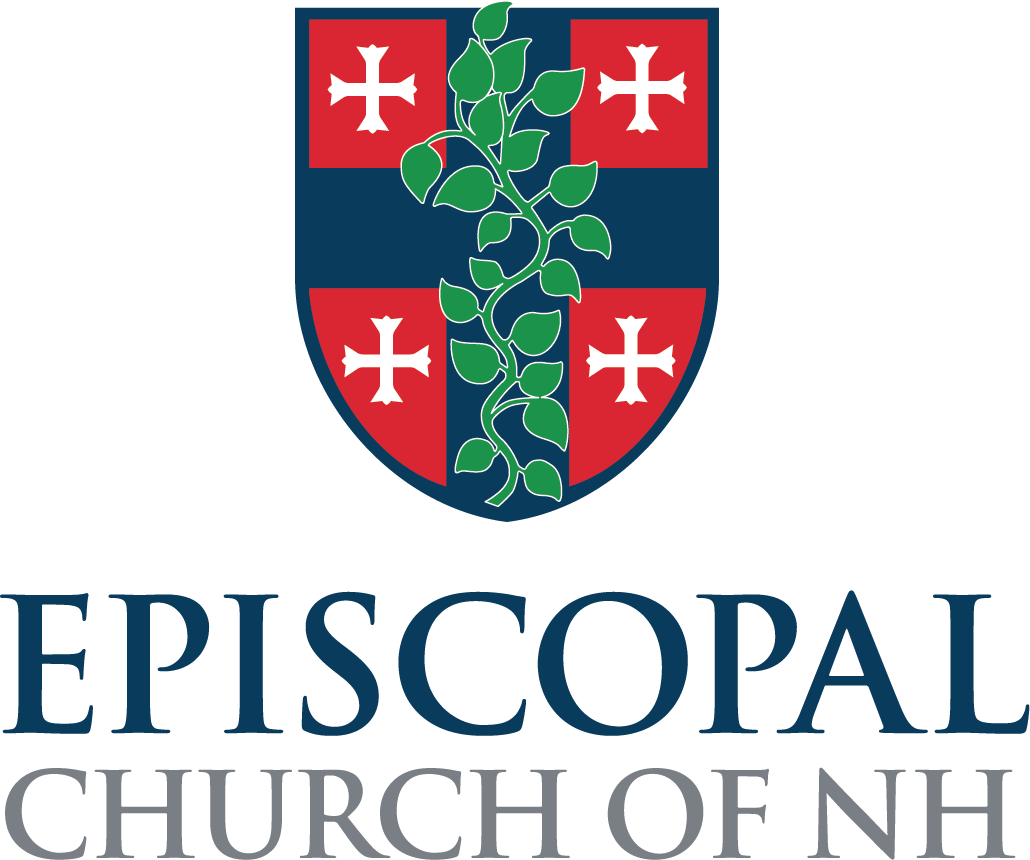Written by Betty Lane and James McKim
Over the past few years, the Episcopal Church of New Hampshire (ECNH) has passed resolutions committing the diocese to working toward racial reconciliation, healing and justice guided by the long-term commitment to Becoming Beloved Community. As a church we have affirmed the path of telling the truth about our churches and race, proclaiming the dream of Beloved Community, practicing Jesus’ way of healing love, and repairing the breach in society and institutions.
The 221st Convention of the ECNH passed the resolution “Becoming the Beloved Community: A Plan for Reparations.” That resolution set forth $56,000 and called for a Reparations Task Force to develop a strategy and framework for reparations.
Why? Ongoing racial injustice continues to plague New Hampshire with disparities in access to economic opportunities, education, healthcare, and criminal justice continue to disproportionately impact non-white communities. Our baptismal vows call us, with God’s help, to seek and serve Christ in all persons, loving our neighbor as ourselves and to strive for justice and peace among all people and respect the dignity of every human being knowing that this can be challenging and yet joyful work of the church.
The Reparations Task Force has been created. Betty Lane from Christ Church, Portsmouth and James McKim from St. Matthew’s, Goffstown are co-chairs. As per the resolution, the Task Force has representation from the Reconciliation Commission (the Ven. Derek Scalia), Diocesan Council (Lauren Tennett), Finance Lauren Tennett), Standing Committee (the Rev. Guy Collins), and the Trustees (Sarah Ambrogi). Other members include youth representative Seth Bonvouloir and the Rev. Zac Harmon, liaison to community partners and Indigenous communities. The Rev. Michele Bonner, who recently returned to New Hampshire from the Diocese of Texas, has been hired as a part-time coordinator for the effort.
The Task Force has been meeting since January. It has developed a definition of reparations for all to use.
“Reparations is the spiritual and material process to remember, restore, reconcile, and make amends for historical and continuing wrongs such as: Peoplehood/Nationhood, Education, Health, Criminal Punishment, Wealth, and Poverty, against African American and Indigenous people that can never be singularly reducible to monetary terms, but must include repentance, a substantial investment and surrender of resources, and a guarantee of non-repeat.”
(Note: The wrongs identified above are known as the Five Injuries; learn more here. )
The Task Force has identified work to be done in the following areas:
Build Relationships
Truth-Finding
Truth-Telling
Repentance
Repairing the Breach/Rehabilitation/Restitution/Compensation
Evaluation/Satisfaction
To gain insights into the brokenness here in New Hampshire and to ensure that the work we do is truly effective, the Task Force has been building relationships with organizations identified as “Accountability Partners,” such as the Black Heritage Trail NH, the Cowasuck Band of the Penacook-Abenaki, BLM NH, the three branches of the NAACP, and others. To gain insights into the thoughts of members of the diocese and provide guidance on what can be done locally, the Task Force is coordinating meetings with each of the seven Convocations. To provide opportunities for truth telling and healing, the Task Force is in the process of scheduling Healing of Memories workshops which will be available for everyone in the diocese.
“This work is long-term work,” says Bishop Hirschfeld. “And we have the best minds in the diocese leading our efforts. However, as followers of Jesus, we should not wait for their plan and framework to take action. We encourage every member of the church to participate in a Sacred Ground program. We encourage every parish to live into our 219th Convention resolution to go through the program “Becoming Beloved Community Where You Are”.
For more information on the work of the Task Force or what you can do now toward reparations and Becoming Beloved Community, contact the Rev. Michele Bonner at reparations@nhepiscopal.org.

